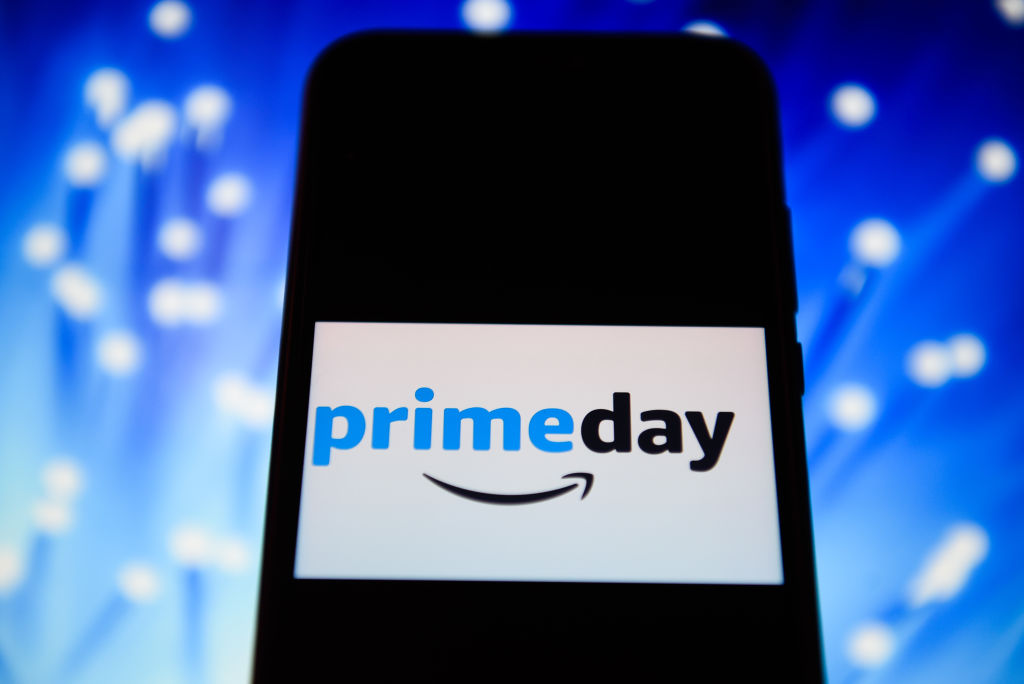Profit and prosper with the best of Kiplinger's advice on investing, taxes, retirement, personal finance and much more. Delivered daily. Enter your email in the box and click Sign Me Up.
You are now subscribed
Your newsletter sign-up was successful
Want to add more newsletters?

Delivered daily
Kiplinger Today
Profit and prosper with the best of Kiplinger's advice on investing, taxes, retirement, personal finance and much more delivered daily. Smart money moves start here.

Sent five days a week
Kiplinger A Step Ahead
Get practical help to make better financial decisions in your everyday life, from spending to savings on top deals.

Delivered daily
Kiplinger Closing Bell
Get today's biggest financial and investing headlines delivered to your inbox every day the U.S. stock market is open.

Sent twice a week
Kiplinger Adviser Intel
Financial pros across the country share best practices and fresh tactics to preserve and grow your wealth.

Delivered weekly
Kiplinger Tax Tips
Trim your federal and state tax bills with practical tax-planning and tax-cutting strategies.

Sent twice a week
Kiplinger Retirement Tips
Your twice-a-week guide to planning and enjoying a financially secure and richly rewarding retirement

Sent bimonthly.
Kiplinger Adviser Angle
Insights for advisers, wealth managers and other financial professionals.

Sent twice a week
Kiplinger Investing Weekly
Your twice-a-week roundup of promising stocks, funds, companies and industries you should consider, ones you should avoid, and why.

Sent weekly for six weeks
Kiplinger Invest for Retirement
Your step-by-step six-part series on how to invest for retirement, from devising a successful strategy to exactly which investments to choose.
You have the crib, the car seat and enough diapers to cover the brood on Jon & Kate Plus 8. But you're not done gathering your baby essentials yet.
In all the excitement of planning for a new arrival, money matters often get pushed to the back of the closet (after all, they don't come in soft pastel colors with cute little teddy bears embroidered on them). You just want what's best for your baby, but temporarily overlooking your new financial responsibilities could place your growing family at risk. Here are four financial items no new parent should go without.
MUST-HAVE #1: A budget
From just $107.88 $24.99 for Kiplinger Personal Finance
Become a smarter, better informed investor. Subscribe from just $107.88 $24.99, plus get up to 4 Special Issues

Sign up for Kiplinger’s Free Newsletters
Profit and prosper with the best of expert advice on investing, taxes, retirement, personal finance and more - straight to your e-mail.
Profit and prosper with the best of expert advice - straight to your e-mail.
I'll be the first to admit that shopping for a baby is fun. But throw in proud-papa zeal and pregnant-mama hormones and you have a recipe for overspending. Before you lay down a dime, know your needs and wants, and determine exactly how much you're willing to spend -- and where the money will come from. Please, please, please avoid going into debt while outfitting the nursery. Your goal is to create a stable and nurturing environment for baby -- racking up a ton of family debt will do just the opposite.
Begin by budgeting for major expenses, such as paying for the hospital delivery and accounting for any unpaid leave from work. And if one parent plans to stay home indefinitely with the baby, use our calculator to make sure you can afford to live on one income and adjust your spending habits accordingly. Before baby arrives, give the arrangement a test run.
After baby arrives and things settle down to some version of normalcy, you'll need to make sure there's room in your day-to-day budget for things such as diapers, formula, clothes, toys, doctor visits, photo development and babysitters. You may have to trim your spending in other areas to free up the money. See Save Money on Practically Everything for ideas. And for help in creating a budget, use our budgeting worksheet.
MUST-HAVE #2: Life and disability insurance
There's much more to caring for baby than warming bottles and changing diapers. You'll want to make sure you're always able to provide for your new family -- even if you happen to get injured or die. And that means you need proper disability and life insurance.
For life insurance, you should generally get enough coverage to equal four to eight times your annual salary. For a more accurate estimate of your needs, though, use this calculator. Even if your spouse works, the added strain on the daily finances may be too much for the survivor to handle in the event of your untimely death -- not to mention the blow to his or her ability to save for the kids' college. And stay-at-home spouses may need their own policy to help pay for child care in the event of their death. See Get the Best Rate on Life Insurance to learn more.
Although life insurance is important, you're far more likely to get injured on the job than die. So all new parents should make sure they also have enough disability insurance to pay the bills and maintain their standard of living in case they're ever out of work. You already may have some coverage through your job -- such plans typically cover up to 60% of your salary. Check with your employer to find out whether you have any coverage and to get the details. Then take a look at your budget and figure out how much you'd need to meet your monthly obligations. Many workers will need to buy a supplemental policy to fill the gaps in their employer's plan. And if your employer doesn't provide disability insurance, you should buy your own. See Why You Need Disability Insurance for more information.
One must-NOT-have item: Life insurance on your baby. You need life insurance only if someone else depends on you financially. So unless your baby is a child actor and you're relying on him or her to put food on the table, he or she doesn't need a policy. Life insurance is also dubious as a savings vehicle -- you can generally get better returns elsewhere.
MUST-HAVE #3: Health insurance
Don't forget to add the baby to your health insurance policy. You'll want to call your provider before delivery to find out the rules, but generally, Junior should be covered under your policy for 30 days. Fail to officially add him or her to your policy within that time and you may be forced to wait until your employer's next "open enrollment" period to tack the baby on.
It should go without saying that no matter how healthy you are, don't even think about going without insurance when you're bringing another life into the world. Forgoing coverage is risky to your health, your baby's health and your family's financial security.
Without insurance, a normal hospital delivery can cost between $8,000 and $25,000, depending on your location and method of delivery. Then there's the cost of mom's prenatal care -- about $2,000. A year's worth of well-baby checkups will run you another $700, on average. Altogether that's certainly enough to devastate your finances -- and that's if things go according to plan. Costs can skyrocket even further with complications.
The cheapest and easiest way to get health insurance is through your employer. But even if your job doesn't offer it, or you're self-employed or between jobs, you can still find affordable health insurance on your own. Get quotes on individual policies at eHealthinsurance.com.
MUST-HAVE #4: A will
Wills are not just for the uber-wealthy. No matter your financial situation, every parent needs a will to designate a guardian for his or her child if both parents die prematurely. Without a will, a court will decide who will take responsibility for raising your child. Make sure you designate an alternate in case, for some reason, your first choice isn't able to serve at the time. For more tips, see Guardianship for Your Children from the legal experts at Nolo.
You'll also want to designate someone to handle your finances after your death. You may wish for all your assets to pass to your child, but someone will need to handle the logistics. This person doesn't have to be the same person you choose as guardian -- your sister may be great with kids, for example, but terrible with money -- so pick the best person for each job. For something this important, it pays to consult a lawyer (about $300 for a fairly simple will; about $200 per hour for more complicated estates). Having a will gives you a chance to make sure your baby is well taken care of physically and financially after you're gone. (See Five Ways to Prepare for the Unthinkable for more info.)
Profit and prosper with the best of Kiplinger's advice on investing, taxes, retirement, personal finance and much more. Delivered daily. Enter your email in the box and click Sign Me Up.

-
 Nasdaq Leads a Rocky Risk-On Rally: Stock Market Today
Nasdaq Leads a Rocky Risk-On Rally: Stock Market TodayAnother worrying bout of late-session weakness couldn't take down the main equity indexes on Wednesday.
-
 Quiz: Do You Know How to Avoid the "Medigap Trap?"
Quiz: Do You Know How to Avoid the "Medigap Trap?"Quiz Test your basic knowledge of the "Medigap Trap" in our quick quiz.
-
 5 Top Tax-Efficient Mutual Funds for Smarter Investing
5 Top Tax-Efficient Mutual Funds for Smarter InvestingMutual funds are many things, but "tax-friendly" usually isn't one of them. These are the exceptions.
-
 21 Last-Minute Gifts for Grandparents Day 2025 to Give Right Now
21 Last-Minute Gifts for Grandparents Day 2025 to Give Right NowHoliday Tips Last-minute gifting is never easy. But here are some ideas to celebrate Grandparents Day.
-
 Texas Sales Tax-Free Weekend 2025
Texas Sales Tax-Free Weekend 2025Tax Holiday Here's what you needed to know about the Texas sales tax holiday.
-
 Alabama Tax-Free Weekend 2025
Alabama Tax-Free Weekend 2025Tax Holiday Here’s everything you need to know about the 2025 back-to-school Alabama sales tax holiday.
-
 Don't Let High Taxes Break Your Heart This Valentine’s Day
Don't Let High Taxes Break Your Heart This Valentine’s DayState Taxes We’ve mapped out the best states where your box of chocolates comes without a side of sales tax.
-
 Florida Back-to-School Tax-Free Holiday 2025
Florida Back-to-School Tax-Free Holiday 2025Sales Taxes The new tax-free holiday in Florida brought month-long savings on computers, clothing and other school supplies.
-
 Five Reasons You Shouldn't Shop Amazon's Prime Big Deal Days
Five Reasons You Shouldn't Shop Amazon's Prime Big Deal DaysSmart Buying Are Amazon Prime Big Deal Days still a good deal? We'll break it down.
-
 Four Smart Steps To Take Before Buying Your First Home
Four Smart Steps To Take Before Buying Your First Homehome Buying your first home can be daunting. Here are four things you need to do years before you start house-hunting to prepare financially for the biggest purchase of your life.
-
 Best Cash Back Credit Cards
Best Cash Back Credit CardsCredit Cards If you're searching for a credit card that rewards you for everyday purchases, we've chosen the best.
